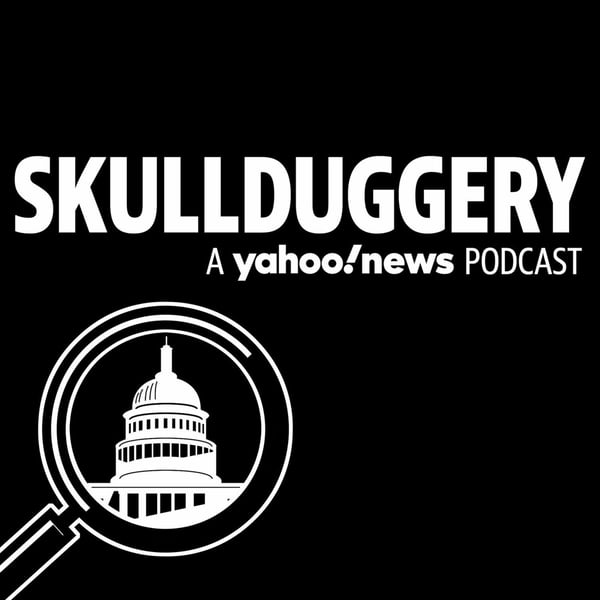Buried Treasure: JFK and the Nazi rocket scientist
Skullduggery
Michael Isikoff, Daniel Klaidman, Victoria Bassetti
4 • 2K Ratings
🗓️ 3 July 2019
⏱️ 42 minutes
🧾️ Download transcript
Summary
See acast.com/privacy for privacy and opt-out information.
See Privacy Policy at https://art19.com/privacy and California Privacy Notice at https://art19.com/privacy#do-not-sell-my-info.Transcript
Click on a timestamp to play from that location
| 0:00.0 | Why some say the moon? Why choose this as our goal? And they may well ask why |
| 0:08.8 | climb the highest mountain? Why 35 years ago? Fly the Atlantic. Why does rice |
| 0:15.8 | play Texas? We choose to go to the moon. We choose to go to the moon. |
| 0:23.4 | We choose to go to the moon and do the other things, not because they are easy, but because |
| 0:35.0 | they are hard. Because that goal will serve to organize and measure the best of our energies |
| 0:42.6 | and skills. Because that challenge is one that we're willing to accept. One we are |
| 0:48.7 | willing to postpone and one we intend to win. That was John F. Kennedy at Rice University in Texas |
| 0:56.0 | on September 12, 1961, delivering one of the most memorable speeches of his presidency. It was a |
| 1:03.0 | speech that inspired the country to embark on one of the great adventures of the 20th century, |
| 1:08.5 | setting the goal of landing a man on the moon before the end of the decade. It was a huge and |
| 1:13.8 | costly undertaking that as historian Doug Brinkley reminds us in his new book, American Moon |
| 1:19.6 | Shot, John F. Kennedy in the Great Space Race, was a risky gambit for which success was by no means |
| 1:25.5 | guaranteed. It was conceived during the height of the Cold War, during a space race in which the |
| 1:31.0 | United States had suffered humiliating setbacks. It was the Soviet Union that had launched the first |
| 1:36.9 | satellite into space, Sputnik in 1958, and it was the Soviets who had set the first human into space. |
| 1:43.6 | Yuri Gagarin in April 1961, just a few months after Kennedy had taken office. It was a race |
| 1:50.6 | Kennedy declared that steamy hot day at Rice that America would win. And it did 50 years ago this |
| 1:57.3 | month, July 20, 1969, when Apollo astronaut Neil Armstrong set foot on the moon, declaring that's |
| 2:05.2 | one small step for man, one giant leap for mankind. We'll look back on the events that led to the |
| 2:11.9 | moon shot, including the crucial role played by a controversial Nazi rocket scientist on this episode |
| 2:19.4 | of buried treasure. Because people have got to know whether or not they're President |
| 2:29.8 | Sir Croft, well I'm not a Croft. I told the American people I did not trade arms for hostage. |
... |
Please login to see the full transcript.
Disclaimer: The podcast and artwork embedded on this page are from Michael Isikoff, Daniel Klaidman, Victoria Bassetti, and are the property of its owner and not affiliated with or endorsed by Tapesearch.
Generated transcripts are the property of Michael Isikoff, Daniel Klaidman, Victoria Bassetti and are distributed freely under the Fair Use doctrine. Transcripts generated by Tapesearch are not guaranteed to be accurate.
Copyright © Tapesearch 2025.

